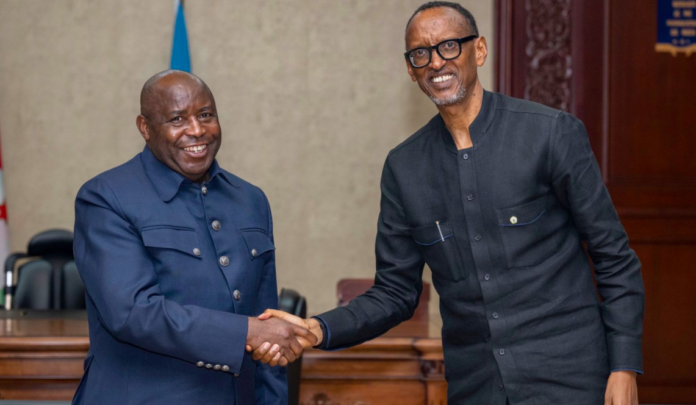In January of this year, 242 Burundian soldiers found themselves detained across four prisons in Burundi. These soldiers, who had been dispatched to assist the Congolese Armed Forces (FARDC) in combating the M23 rebels in North Kivu, were incarcerated in Bururi, Ngozi, Rumonge, and Ruyigi prisons after refusing participation. Information provided to Voice of America by various sources confirms this development.
Within two weeks, the soldiers detained in Bururi and Rumonge were heard by military court judges directly within the prison facilities on the 12th of this month, still awaiting the court’s decision. Those in Bururi and Rumonge, numbering 21 and 103 respectively, had been arrested in December of the previous year. Meanwhile, sources close to the soldiers detained in Ruyigi and Ngozi revealed that their arrests took place on December 9, 2023, with the Ruyigi group being transferred on January 17 and the Ngozi group on January 22 and 23 of the same month.
It has been confirmed that 118 soldiers have been informed by the military court that they will continue to face trial in detention, with the first group notified on the 20th of this month and the second on the 22nd. These soldiers are being prosecuted for two main offenses: mutiny and refusal to obey military orders. A high-ranking officer, preferring anonymity, mentioned that a soldier is allowed to refuse orders if they believe there is no justifiable reason to risk their life.
In a rare public statement on December 29, last year, President Evariste Ndayishimiye addressed the issue, suggesting that soldiers refusing to fight in Congo should be punished for betraying their oath. During a year-end press conference in Cankuzo, he acknowledged the controversy surrounding Burundian soldiers’ deaths in Congo, justifying their actions as a fight against terrorism.
Across the border in Rwanda, there’s a contrasting silence regarding soldiers lost in the Congo. While social media occasionally features condolences for the fallen, specific details about their deaths or the circumstances of their deployment remain undisclosed. There’s no public record of Rwandan Defence Force (RDF) soldiers being detained for refusing to serve in the DRC, which does not necessarily imply their absence, given the known discipline and secrecy within the Rwandan military.
Reports are emerging that Rwanda is deploying former FDLR members who had returned from the DRC to reintegrate into civilian life. This strategy exploits their familiarity with the region and ethnic ties, potentially facilitating RDF operations in North Kivu, particularly in Rutshuru and Masisi, areas predominantly inhabited by Kinyarwanda-speaking Hutus.
The Rwandan government and RDF have maintained silence on these fatalities, consistent with their stance of denying Rwandan military presence in the DRC. Despite visible support for M23 by Rwandan state media and officials, official acknowledgment of RDF troops in the DRC remains elusive. The RDF has reportedly supported M23 with uniforms and military equipment, complicating distinctions between the rebel group and Rwandan soldiers.
International experts and Western countries have accused Rwanda of supporting M23, alleging that orders for the rebel group originate from Kigali.





























































